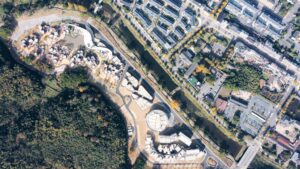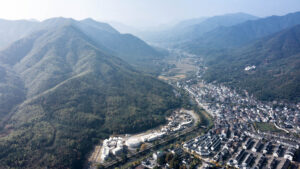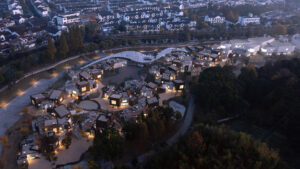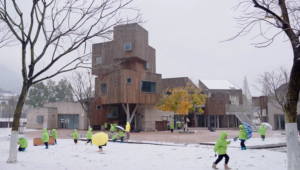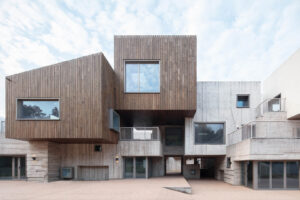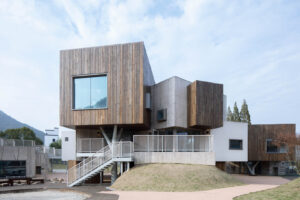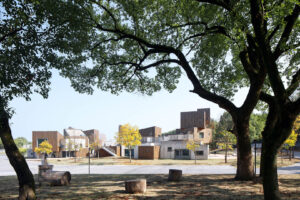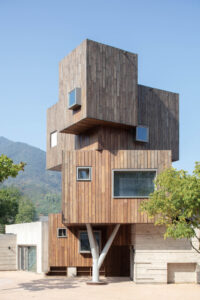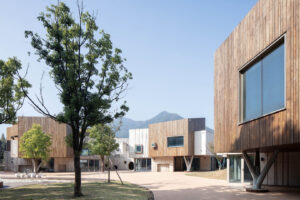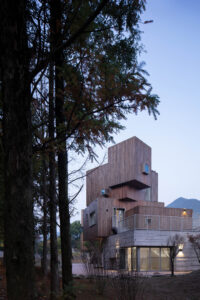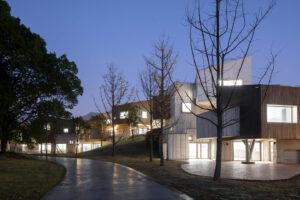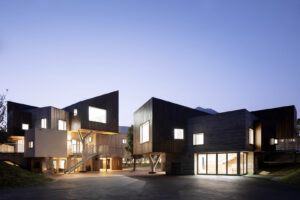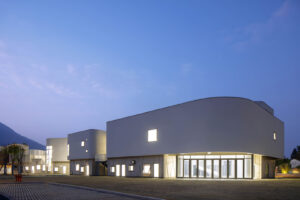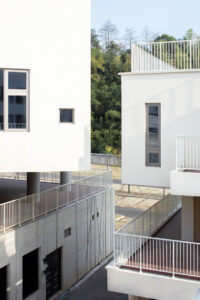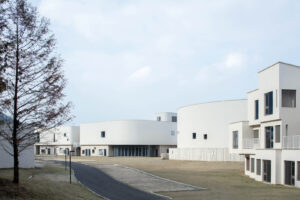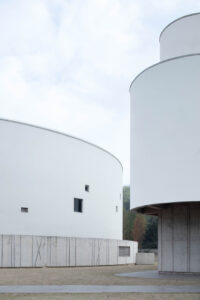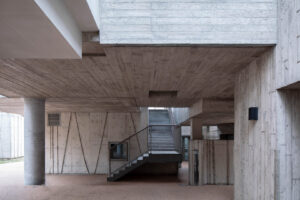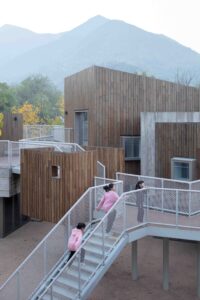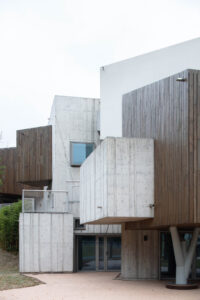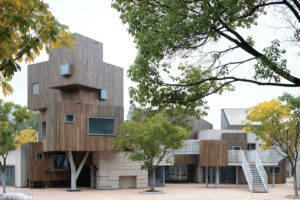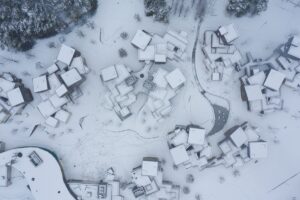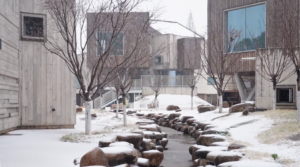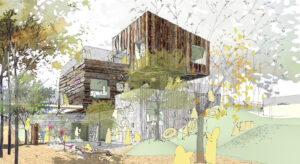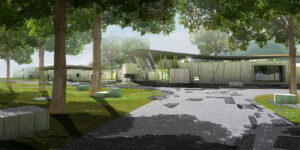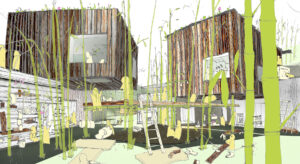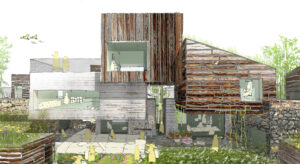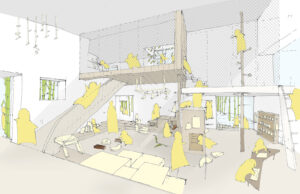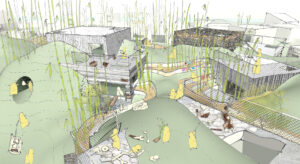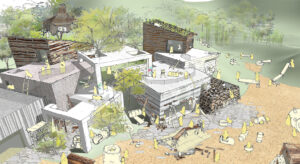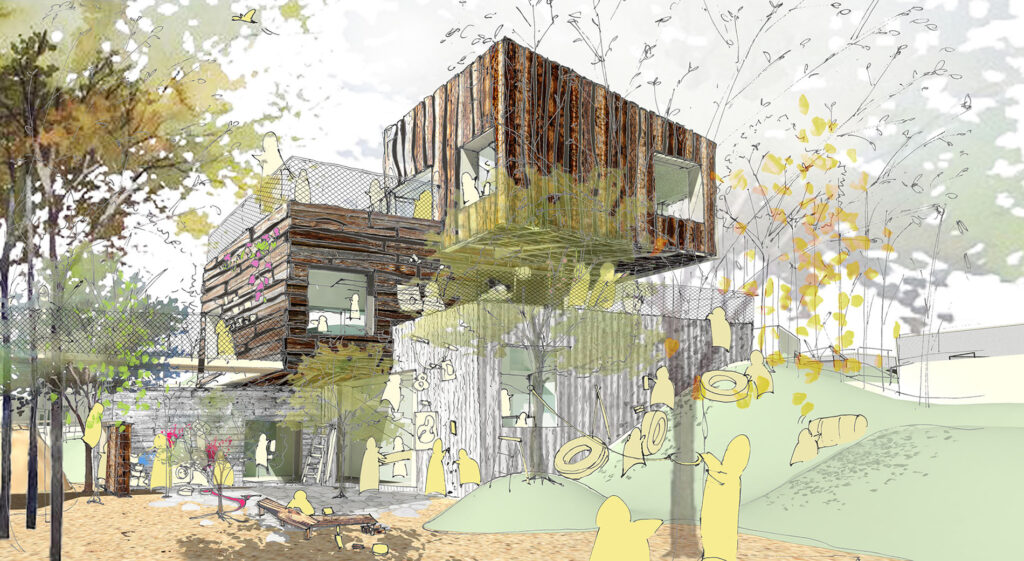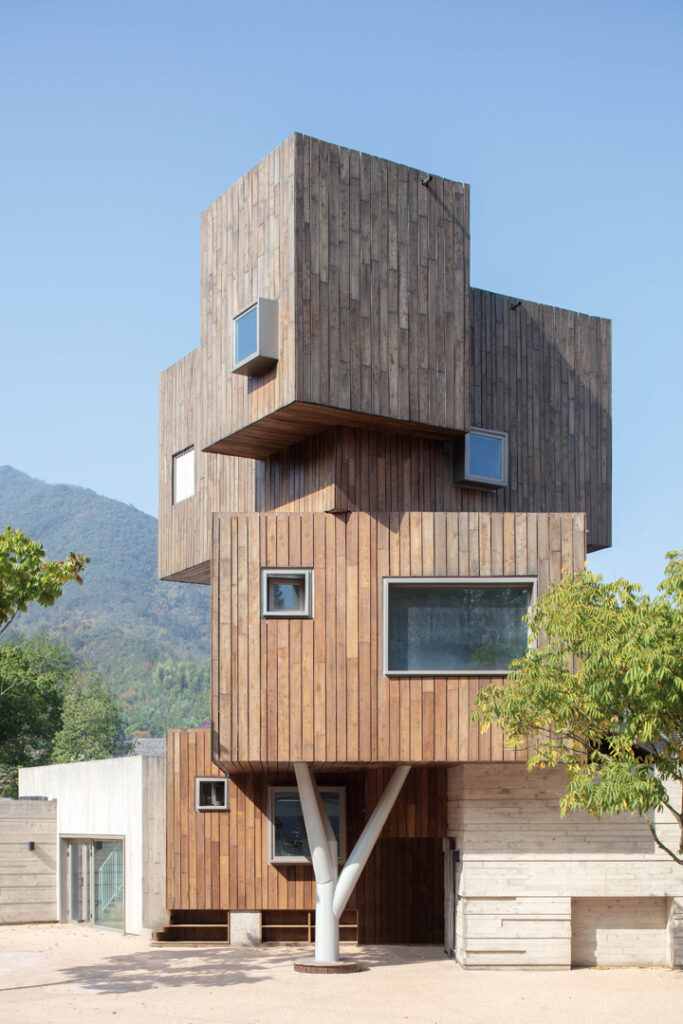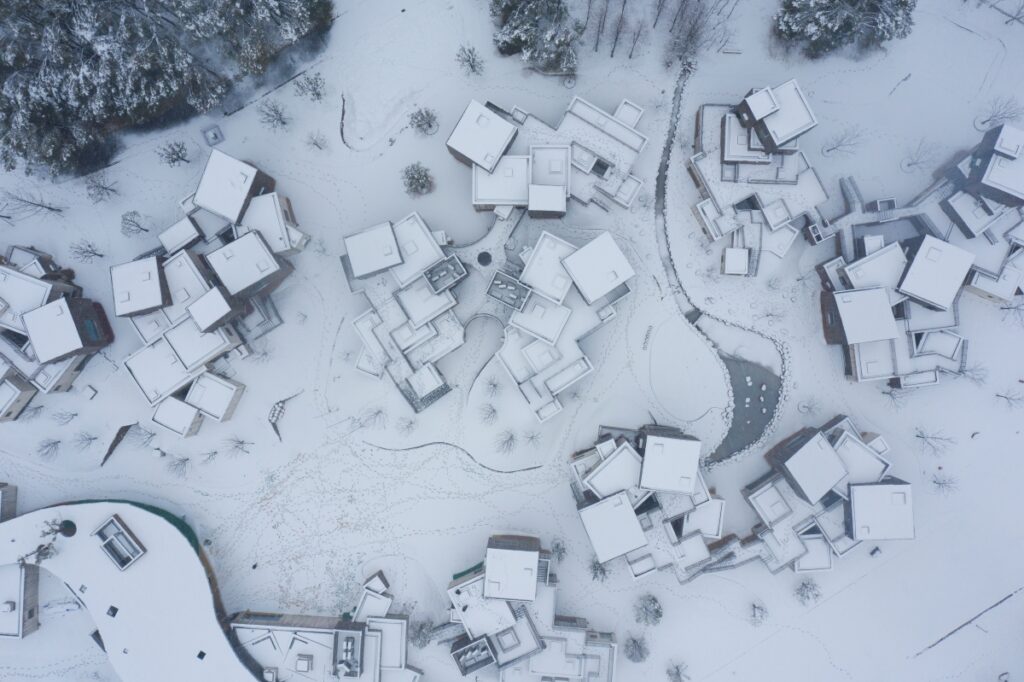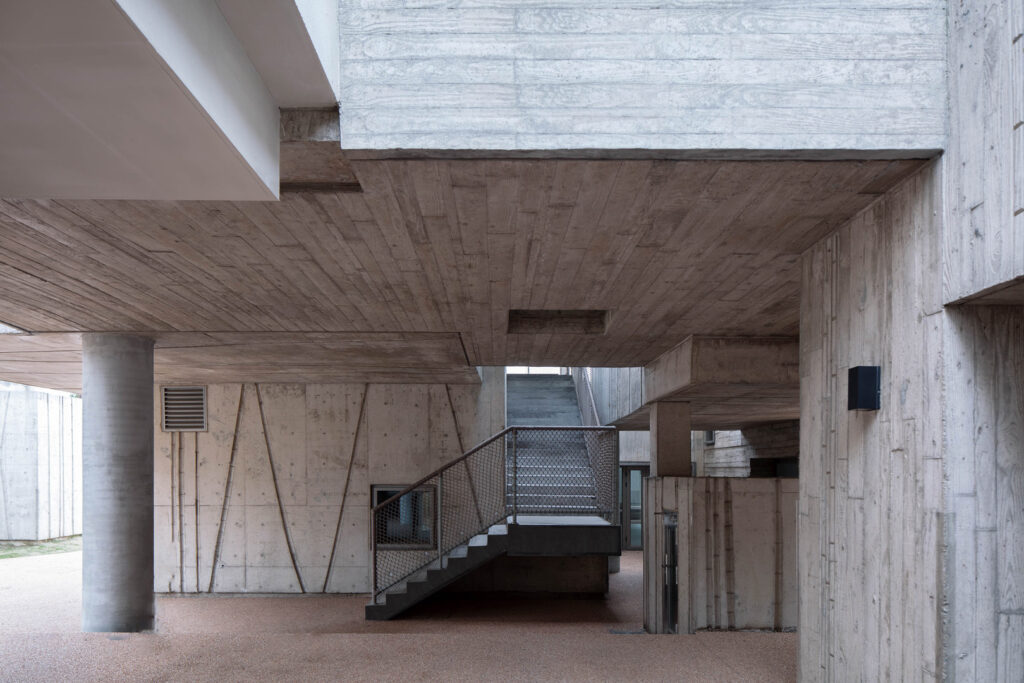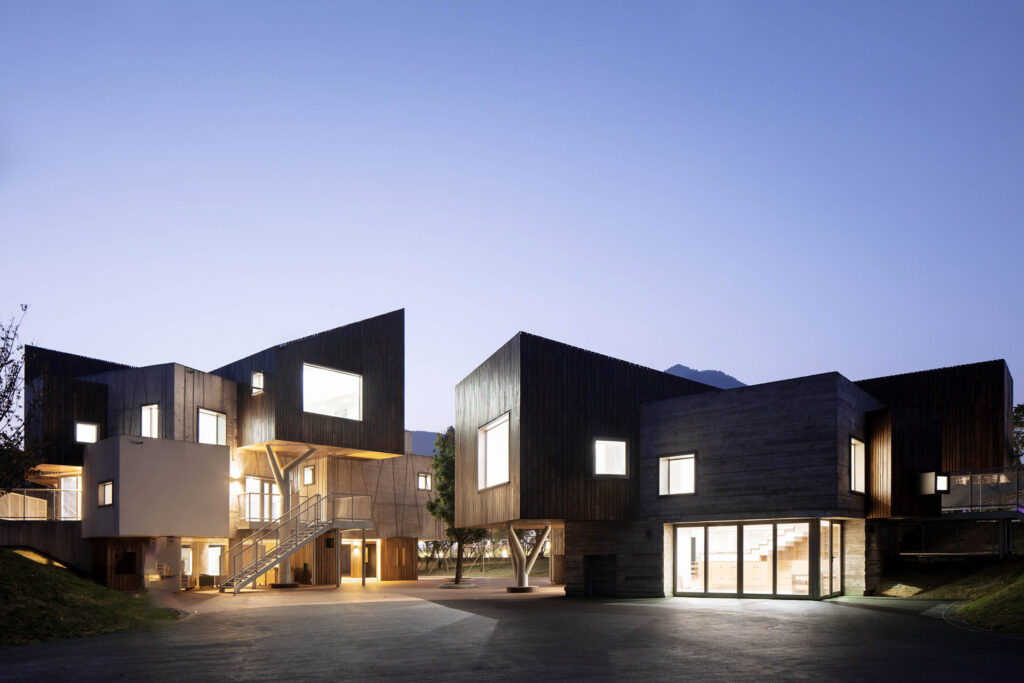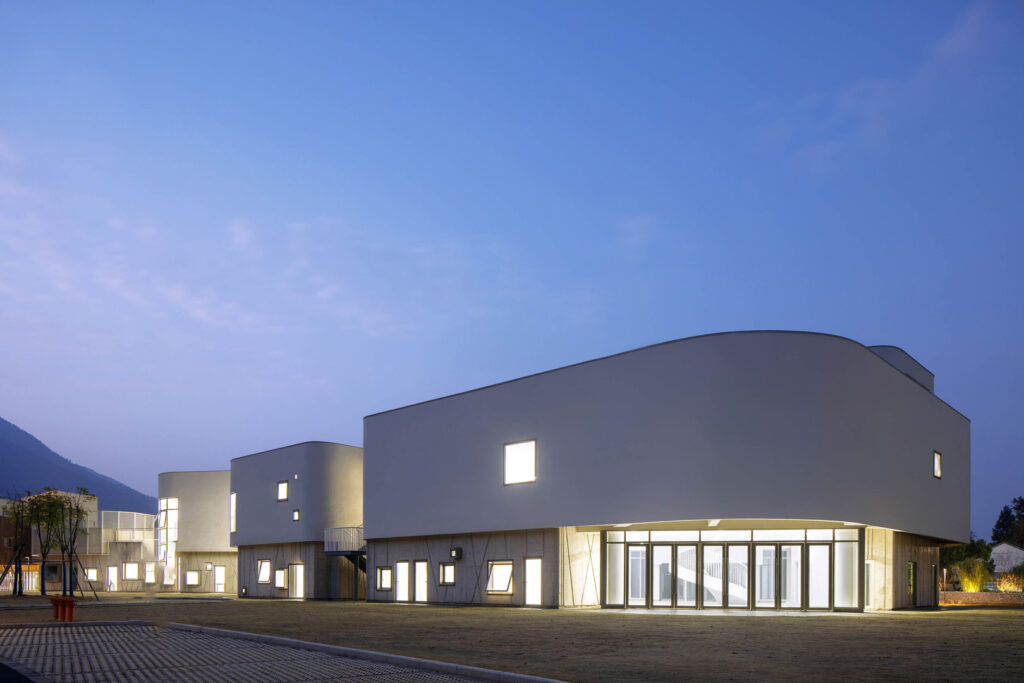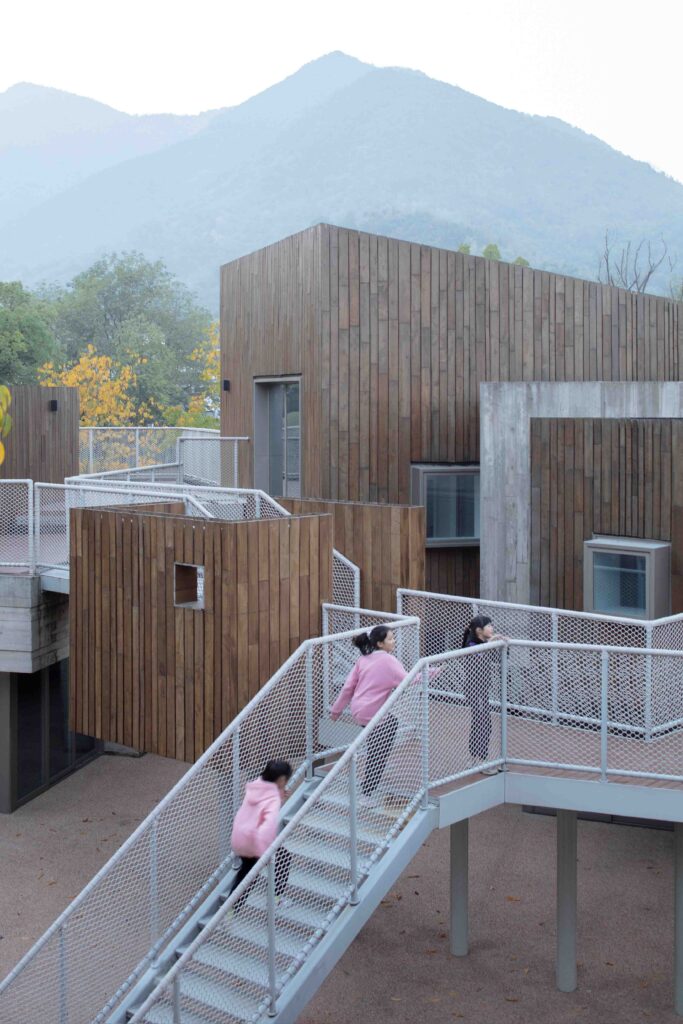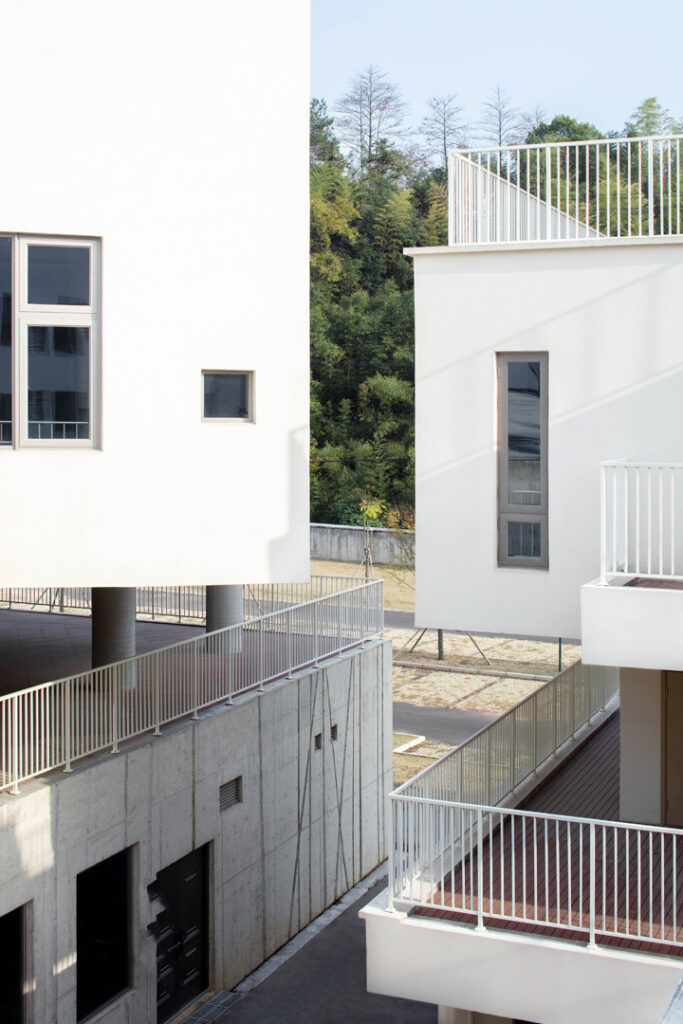Anji Play
Design: 2016-2020
Construction: 2018-2022
Nestled in the footsteps of the Yuhua Jinhua mountains in the countryside of Anji county is the new AnjiPlay Kindergarten and International Child Care Center. Anchoring the education complex comprised of research and teaching centers, an AnjiPlay Museum, convention center and dorms, is the AnjiPlay early childhood kindergarten, the flagship of educator, Ms. Cheng Xueqin’s self-determinate, play based curriculum schools for 3 to 6 year olds.
Love, risk, joy, engagement, reflection are the guiding principles of AnjiPlay. Maximizing the opportunities for imaginative play and contact with natural elements and phenomena requires a predominant presence of nature embracing a humble architecture. Earth, water, sky, trees, bamboo, hills, tunnels and ditches are among the integrated environmental elements that engage children in endless exploration, allowing each child to take ownership of discovery and learning through «True Play.»
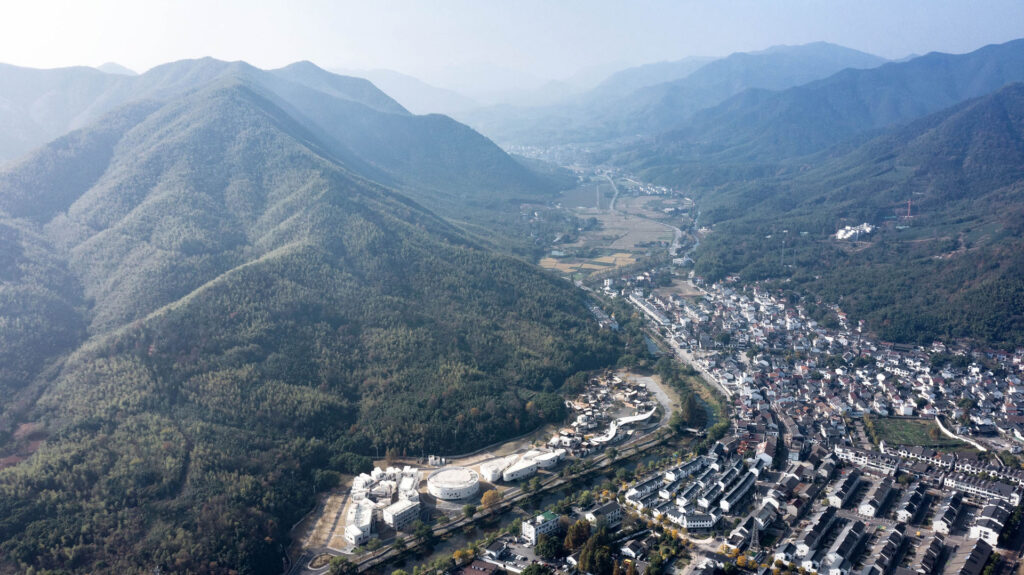
Architecture, is one of the environmental elements that affords complexity in terms of spatial experience and shelter. With the overlapping blending of the natural and architectural elements, new opportunities, phenomena and experiences are constantly created for play and learning. AnjiPlay architecture though must be in its elemental form, simple enough to allow for phenomena to be experienced, not dictated, trusting and engaging children in learning from their natural environment.
The Anji Campus design is the result of experimental play, following the manner of the 21st century early childhood education movement. Founded by Cheng Xueqin, Anji Play begins with the introduction of “large, minimally structured materials within an open-ended, minimally structured environment” and the right of self-determined play. In exercising these rights to space, freedom, materials and time, the children develop play intentions that manifest themselves in “high degrees of complexity.”
In the same manner that the children, left to their own devices, seek to “eliminate factors that stifle play intentions,” so does the architecture of Anji Campus. The prerequisites to the design process derive from the fundamentals of Cheng Xueqin’s philosophy: children have a right of “access to open-ended environments that do not determine or direct the experience or outcome of play… environments that are carefully designed to maximize discovery and problem solving but not lead to specific outcomes or insights…that allow children to challenge themselves at their own level of self-determined risk…[and] that provide access to the natural world as much as possible.”
In fulfillment of these rights is a neutral architecture with the ecology in the foreground, and a fluidity between the spaces. Located in Anji County in the Zhejiang province of China, the site is diverse in its topography and natural elements.
Within the traditional context analysis arises a natural playscape of five clusters, with a ramp of Anji bamboo connecting. The five clusters dissolve into sixteen homerooms, sharing a common building block but remaining unique in form. The homeroom becomes not only an uninhibited space to play and learn and grow, but a home to its children.
Project Gallery
